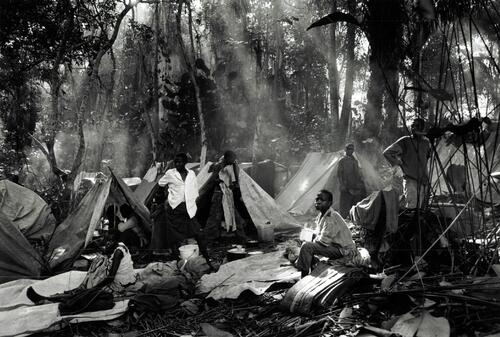Understanding Genocide: A Current Perspective

Introduction
Genocide is a term that evokes significant emotional and moral considerations, representing the intentional destruction of a particular group. Its relevance has surged in recent years due to ongoing conflicts and humanitarian crises around the globe. Understanding genocide is crucial for recognising the signs early and mobilising international efforts to combat and prevent such atrocities.
Definition and Historical Context
Coined during World War II by Polish-Jewish lawyer Raphael Lemkin, genocide is defined as the deliberate and systematic extermination of a national, ethnic, racial, or religious group. Over the decades, historical events such as the Holocaust, the Rwandan Genocide, and the ethnic cleansing in the Balkans have shaped public awareness and legal frameworks regarding such crimes.
Current Events and Recent Cases
In recent years, the situation in Myanmar has drawn global attention, as reports confirm the genocide against the Rohingya Muslim minority. In 2021, the UN’s Independent International Fact-Finding Mission on Myanmar stated that the military’s actions against the Rohingya amounted to genocide. This has spurred international dialogue on humanitarian intervention and the responsibilities of nations to protect human rights.
Another significant case includes the allegations of genocide against the Uyghur population in China. Reports indicate that over one million Uyghurs are detained in so-called ‘re-education’ camps, with testimonies from survivors suggesting systemic abuse aimed at erasing their culture. The international community has begun to respond, including imposing sanctions on Chinese officials involved.
Legal and Humanitarian Implications
The Genocide Convention, adopted by the United Nations in 1948, obligates signatory states to prevent and punish the crime of genocide. Despite this, the enforcement of laws protecting vulnerable populations remains inconsistent due to geopolitical disputes and national interests, often raising ethical questions about intervention.
Conclusion
As awareness of genocide grows, the importance of robust international laws and vigilant humanitarian efforts cannot be overstated. The rising cases of violence against specific groups highlight the need for proactive engagement from global leaders and organisations. The hope lies in educational initiatives and a committed international community working towards prevention, ensuring that the tragedies of the past do not repeat in the future.









